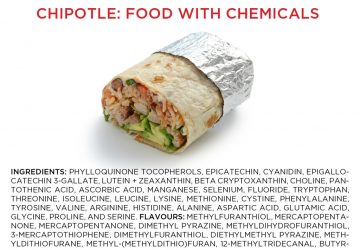 A new review funded by the U.K.-based organic farming group Sheepdrove Trust reported in the British Journal of Nutrition that organic crops are healthier than the non-organic variety. It’s a convenient finding for the Trust’s stable-mate, Sheepdrove Organic Farm, which will happily sell Britons any number of organic food products they produce.
A new review funded by the U.K.-based organic farming group Sheepdrove Trust reported in the British Journal of Nutrition that organic crops are healthier than the non-organic variety. It’s a convenient finding for the Trust’s stable-mate, Sheepdrove Organic Farm, which will happily sell Britons any number of organic food products they produce.
The group is elated by conclusions of the report it paid for, exclaiming: “At Sheepdrove we always knew our food was healthier because of the way we produce it, and now we have the science to back us up!” That will enthrall one of the study’s editor-reviewers, organic ideologue Peter Melchett (who once said the organic-food movement has to “go on feelings” rather than science). This study has “Big Organic” written on it from front to back.
Snark aside, the funding of a study shouldn’t automatically disqualify the results. But let’s consider the background. Scientific research has consistently rejected any discrepancy in the nutritional values of organic and conventionally grown crops. A 2009 meta-review conducted by the U.K. government’s Food Standards Agency reported that organic and non-organic foods are “broadly comparable” in health content, and a 2012 study by Standard University confirmed: “No consistent differences were seen in the vitamin content of organic [versus non-organic] products.” But considering the retailer markets its organic unsmoked back bacon at a jaw-dropping $15.88 per pound, it’s not difficult to imagine why it might have a vested interest in advertising the supposed health benefits of pricey organic products.
The study points to higher levels of antioxidants found in organic foods (compared to levels in the non-organic samples) as its primary evidence that organic foods are healthier. However, there is no conclusive research showing that antioxidants have any nutritional value. Even the study itself cautions that its findings are merely speculative, noting: “it is important to point out that there is still a lack of knowledge about the potential human health impacts of increasing antioxidant intake levels and switching to organic food consumption.”
The logic underpinning the study—that is, that antioxidants are healthy—prompted Professor Richard Mithen, leader of the Food and Health Programme at the Institute of Food Research, to argue that the findings of the report “suggest a poor knowledge of the current understanding within the nutrition community of how fruit and vegetables may maintain and improve health.” The authors also noted that there was a lack of standardization in measurement methods across the studies cited
We should also note that both the Stanford and Sheepdrove reviews have methodological shortcomings. Since both reviews pool studies from different areas (14 countries in the case of Sheepdrove), it’s hard to control for the multitude of other factors that go into crop production, such as type of fertilizer, insecticides, ambient temperature, and other climatic conditions.
In the end, we still don’t see any convincing evidence that organic is worth the higher price tag or more nutritious than “conventional” food. Unfortunately, profit-seeking environmental groups often sow bad science in order to reap revenue (see also: GIFs). For them, going green is ultimately about the cash.





